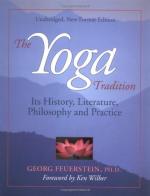|
This section contains 5,723 words (approx. 20 pages at 300 words per page) |

|
SOURCE: “Thomas Henry Huxley and Philosophy of Science,” in Thomas Henry Huxley's Place in Science and Letters, edited by Alan P. Barr, University of Georgia Press, 1997, pp. 51-66.
In the following essay, Knight appraises Thomas Henry Huxley's influence on the study and popularity of science in the nineteenth century.
Huxley was a bold, accessible, and above all controversial writer, at his best defending a friend or attacking an enemy—a David in constant search of Goliaths, if we may use the kind of biblical imagery in which he delighted. Like Aristotle, another keen student of living organisms, Huxley developed his positions in argument with others, living or dead. Unlike Aristotle, he is not much cited in philosophical writings today. Charles Darwin was “Philos” to his shipmates on HMS Beagle, and like him and like Michael Faraday, Huxley saw himself as a natural philosopher. The new word “scientist” had...
|
This section contains 5,723 words (approx. 20 pages at 300 words per page) |

|


